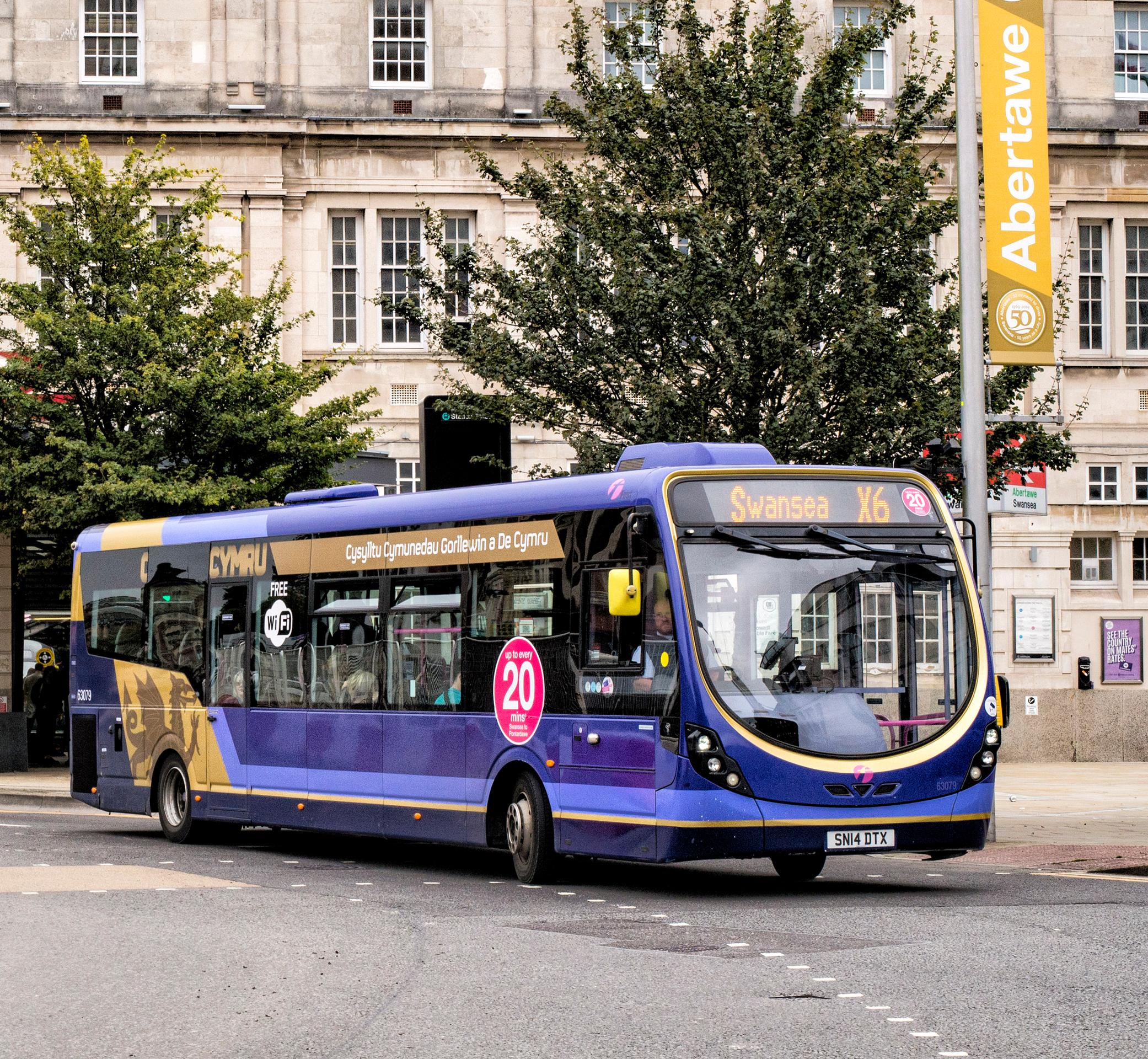
A couple of weeks ago Transport for Wales invited people to come along to Swansea Bus Station to give their views on the routes that buses in the city should take, once TfW takes over full responsibility for decisions from the existing bus companies. We went along and had some interesting chats with TfW staff about what they planned.
The very fact that bus users (and others) are being consulted about bus routes and hours of service is a welcome novelty. The last time routes were changed in Swansea – for the worse, of course – First Cymru simply announced its reorganisation (in reality, a major downgrading of services). There was no process of asking users first. The company didn’t think about the effect on passengers, only about their own convenience –and presumably the pockets of their shareholders (First Group’s profits increased to £222.8m in 2025).
Under the new arrangements, following the passing of the Bus Services (Wales) Bill 2025, routes will be determined at an all-Wales level, through Transport for Wales, rather than by companies. Companies will still operate services, under what the government calls ‘franchising’, but under more democratic direction and less of an eye on commercial profit. Passenger needs will have more influence.
All this sounds good news. The test, though, will be how the new system, due to be in operation first in south west Wales by 2027, is put into practice, and, crucially, how much money will be available to make a positive difference to people’s travel experiences. What TfW propose for our local area is mildly encouraging. Frequency would not be increased (buses used to be twice as frequent when we first moved to Swansea). But the absurd round-the-houses route imposed without warning by First Cymru last time round – which meant it was quicker to walk one stretch rather than take the bus – will be abolished. This suggests that TfW is willing to listen.

The other benefits the government claims will follow from the legislation – better timetabling, through-ticketing and a more co-ordinated network – are also worth having. Buses are important, especially for the 20% of people in Wales who don’t have access to a car: older, younger and disabled people. Something needs to be done to return bus usage to pre-Covid levels (it’s still more than 20% down).
But there are much wider issues about transport in Wales. The franchising change, however successful it is, will barely scratch the surface of the problems that arise from the fact that transport is so badly skewed in favour of the private car and against other means of getting around. The results are obvious all around us. Congestion increases constantly. Our local main road, Oystermouth/Mumbles Road, is already one of the busiest non-motorway roads in Wales. At current rates of traffic growth it will surely turn into a single static car park within a few years. Aerial pollution also increases, even with the (slow) transition to electric vehicles. All kind of other negative effects follow from excessive car use: road accidents, poor urban planning, sedentary lifestyles, and more. Of all these problems the most profound is the effect of unrestricted private transport on climate change. Transport’s percentage contribution to global heating is now over 30%, and increasing.
Cardiff and Swansea are excellent examples of how transport should not be organised. Other cities do things differently. In the UK, London is the obvious model. Few Londoners need to own or use a car, since trains, tubes and buses are so plentiful and cheap, and the congestion charge and Ultra Low Emission (ULEZ) zone discourage car use. You could argue that London isn’t actually a model for smaller cities: its population is much bigger and more concentrated, and, as the seat of power and wealth, it can afford to support public transport with massive subsidies (about £1bn, compared with £1.7 for the whole of the rest of England). The best exemplars, maybe, are smaller cities in other European countries, where walking and cycling are much commoner and replace car journeys, but backed up by excellent bus and train networks, so that driving yourself is no longer the default choice for urban travel.

Suppose TfW and Swansea City Council were to decide that more radical action was needed to improve transport in the city (Swansea, unlike Cardiff, has seen no improvements to rail services). What could they do? There are obviously some things well beyond their powers. They couldn’t make the obvious decision, for example, to increase fuel duty , which has remained (scandalously) unchanged for fifteen years, stimulating yet more car use. But it would be possible to rethink bus services, especially by making services much more frequent – say, a bus every five or ten minutes along Oystermouth/Mumbles Road, instead of every half an hour? There could be much more prioritising of buses above other vehicles on the roads. Ticket prices could be reduced. And at the same time, car travel could be made less attractive, by introducing congestion charges, car-free zones and clean air areas, as in London, and reducing the over-provision of cheap city centre parking, for example by introducing workplace parking levies. Measures like these would reduce the key advantage of cars, personal convenience, and make bus travel the first choice of everyone, not just the poor and the old.
None of this is easy. The car lobby is powerful, and the force of inertia even more so. Opposition to even modest reform is guaranteed, as the furore over introducing a 20mph limit showed. But that’s no excuse for inaction. If TfW and Swansea Council really do believe that we’re living in a climate emergency, it’s time they got together to see what can be done to improve our transport system.

Leave a Reply to Jo Lambert Cancel reply